

Articles
Why Is My AC So Loud Inside My House
Modified: October 19, 2024
Discover why your AC is making so much noise inside your house with our informative articles. Learn how to troubleshoot and fix common AC noise problems.
(Many of the links in this article redirect to a specific reviewed product. Your purchase of these products through affiliate links helps to generate commission for Storables.com, at no extra cost. Learn more)
Introduction
Have you ever wondered why your air conditioning (AC) is making so much noise inside your house? It can be quite disturbing and even alarming to hear loud and unusual sounds coming from your AC unit. Not only does it affect your comfort, but it may also indicate a potential issue with your system that needs attention.
In this article, we will explore the common causes of loud AC noise and provide you with practical solutions to reduce the noise levels. By understanding the underlying reasons for the loud noise and taking appropriate measures, you can ensure a quieter and more peaceful indoor environment.
So, let’s dive in and uncover the reasons behind the loud AC noise and how you can address them effectively.
Key Takeaways:
- Regularly changing air filters is crucial for reducing AC noise and maintaining efficient performance. Clean filters ensure proper airflow, minimize strain on the system, and improve overall air quality.
- Consulting a professional for proper sizing and considering an upgrade to a newer AC unit can significantly reduce noise levels, improve energy efficiency, and enhance overall cooling performance.
Read more: Why Is My House So Humid With The AC On
Common Causes of Loud AC Noise
1. Dirty Air Filters:
One of the most common reasons for a loud AC unit is dirty air filters. When the air filters become clogged with dust, dirt, and debris, it restricts the airflow, causing the AC unit to work harder and create more noise. It is important to regularly clean or replace the air filters to maintain proper airflow and reduce noise levels.
2. Loose or Deteriorating Ductwork:
If your AC system has loose or deteriorating ductwork, it can result in air leaks, rattling sounds, or whistling noises. The air escaping from the ducts can cause the AC unit to work inefficiently and produce loud noises. Inspecting and repairing the ductwork can help eliminate the unwanted noises and improve the overall performance of your AC system.
3. Faulty Fan Motor:
A faulty fan motor can be another culprit behind the loud AC noise. If the motor is malfunctioning or worn out, it can produce grinding, squealing, or screeching sounds. In such cases, it is crucial to schedule maintenance or replace the fan motor to prevent further damage and reduce noise levels.
4. Refrigerant Leaks:
Refrigerant leaks can not only affect the cooling efficiency of your AC system but also cause noise disturbances. The hissing or bubbling sounds often indicate a refrigerant leak. It is important to detect and fix the leaks promptly to avoid any long-term damage and reduce the accompanying noise.
5. Debris or Obstruction in the AC Unit:
If there are debris, leaves, or other obstructions in your AC unit, it can lead to loud noises. The debris can interfere with the fan blades, causing them to scrape against the housing or create unsettling rattling sounds. Regularly cleaning and clearing any obstructions from the AC unit can help maintain smooth and quiet operation.
6. Improperly Sized AC Unit:
Using an AC unit that is either too small or too large for your space can result in excessive noise. An undersized unit will have to work harder to cool the area, leading to increased noise levels. On the other hand, an oversized unit may cycle on and off frequently, causing noise disruptions. Consulting a professional to determine the appropriate size of AC unit for your space can help minimize noise-related issues.
7. Age and Wear and Tear:
Lastly, an old or worn-out AC unit can make more noise due to the aging components and accumulated wear and tear. Over time, the motor, bearings, and other moving parts can become noisy. An older unit may also lack advanced noise reduction features found in newer models. If your AC unit is significantly older and causing considerable noise disturbances, it may be worth considering an upgrade to a newer and more efficient model.
Now that we have explored the common causes of loud AC noise, let’s move on to discover how you can reduce the noise levels and maintain a quieter indoor environment.
Dirty Air Filters
Dirty air filters are one of the primary culprits behind a loud AC unit. When the air filters become clogged with dust, dirt, and debris, it restricts the airflow and causes the system to work harder. This increased strain on the AC unit not only leads to reduced efficiency but also generates excessive noise.
Over time, the accumulation of dirt and debris on the air filters creates a barrier that prevents the smooth flow of air. As a result, the AC unit has to exert more power to push the air through the clogged filters, resulting in a louder operation.
Regularly cleaning or replacing the air filters is vital to maintain proper airflow and reduce noise levels. It is recommended to check the filters monthly and clean them if noticeable dirt has built up. In households with pets or in high-pollution areas, the filters may require more frequent cleaning.
To clean the air filters, first, turn off the power to the AC unit. Remove the filters and gently vacuum or rinse them with water to remove the accumulated dirt. Allow the filters to dry completely before reinstalling them. If the filters are beyond cleaning or are severely damaged, it is best to replace them with new ones.
By keeping the air filters clean, you not only improve the air quality in your home but also ensure a quieter and more efficient operation of your AC system.
In addition to reducing the noise level, clean air filters also have other benefits. They enhance the overall performance and longevity of your AC unit by minimizing strain on the system. Clean filters also help maintain good air quality by trapping dust, allergens, and other airborne particles, preventing them from circulating in your home.
Remember to refer to the manufacturer’s instructions or consult with an HVAC professional for specific guidance on cleaning and replacing the air filters in your AC system.
Now that you understand how dirty air filters can contribute to a loud AC unit, it’s time to move on to the next common cause of AC noise: loose or deteriorating ductwork.
Loose or Deteriorating Ductwork
Another common cause of a loud AC unit is loose or deteriorating ductwork. The ductwork plays a crucial role in distributing the cooled air throughout your home. However, over time, the ductwork can develop leaks, become loose, or deteriorate, leading to unwanted noise.
When there are leaks or openings in the ductwork, air can escape from the system before reaching its intended destination. This can result in a decrease in airflow and an increase in the noise level produced by the AC unit.
Loose ducts can also cause rattling or vibrating sounds as the air passes through the gaps and causes the ductwork to move. Additionally, deteriorating ducts can create whistling or hissing noises due to the uneven flow of air.
Inspecting and repairing the ductwork is essential for reducing AC noise and ensuring the efficient operation of your system. Start by visually inspecting the visible sections of the ductwork for any apparent leaks or gaps. Use a flashlight to check for any signs of disconnection or damage.
If you identify any leaks or loose sections, you can try sealing them using duct tape or mastic sealant. However, keep in mind that these are temporary solutions and may not provide long-lasting results. It is recommended to consult with an HVAC professional to accurately assess and repair the ductwork.
A professional technician can perform a thorough inspection of the ductwork and identify any hidden leaks or detached sections. They have the knowledge and expertise to determine the best course of action to repair or replace the ductwork to minimize noise and improve the efficiency of your AC system.
Addressing the issues with your ductwork not only reduces AC noise but also enhances the overall performance of your HVAC system. Properly sealed and insulated ductwork allows for better airflow and eliminates energy wastage. This can result in improved cooling efficiency, reduced energy bills, and a more comfortable indoor environment.
Now that you understand how loose or deteriorating ductwork can contribute to AC noise, let’s move on to the next common cause: a faulty fan motor.
Faulty Fan Motor
A faulty fan motor is another common cause of loud AC noise. The fan motor is responsible for circulating the air through the AC system and facilitating efficient cooling. However, over time, the motor can become worn out or malfunction, leading to increased noise levels.
There are several reasons why a fan motor can become faulty and create noise disturbances:
1. Worn-out Bearings: The bearings in the fan motor can wear out over time, leading to friction and increased noise. As the motor spins, the worn-out bearings can create grinding or squealing sounds.
2. Loose or Damaged Belts: If the fan motor uses belts to operate, loose or damaged belts can result in slippage or misalignment. This can cause the belts to make screeching or squeaking noises as they rub against other components.
3. Motor Misalignment: In some cases, the fan motor can become misaligned due to wear and tear or improper maintenance. This misalignment can cause the fan blades to scrape against interior components, producing a rattling or scraping noise.
If you suspect that the fan motor is causing the loud AC noise, it is crucial to address the issue promptly before it leads to further damage. Consulting with an HVAC professional is recommended to accurately diagnose and repair the faulty fan motor.
A skilled technician can inspect the motor, bearings, belts, and other components to identify the root cause of the noise. They may need to lubricate the bearings, tighten the belts, or realign the motor to resolve the issue. In some cases, the fan motor may need to be replaced if the damage is severe or if the motor is beyond repair.
Regular maintenance is also essential to prevent fan motor issues and ensure proper operation. Scheduling periodic maintenance for your AC system can help detect any potential problems with the fan motor early on and prevent them from escalating into more significant issues.
By addressing a faulty fan motor, you not only reduce the noise emitted by the AC unit but also improve its performance and extend its lifespan. A well-functioning fan motor ensures optimal airflow, efficient cooling, and a quieter indoor environment.
Now that you have an understanding of the reasons behind a faulty fan motor, let’s move on to the next common cause of a loud AC unit: refrigerant leaks.
Read more: Why Is My Electric Kettle So Loud
Refrigerant Leaks
Refrigerant leaks can be a significant cause of loud AC noise. Refrigerant is a crucial component of the cooling process in your air conditioning system. It absorbs heat from your indoor air and carries it outside, allowing the air to be cooled and circulated back into your home. However, when there is a leak in the refrigerant lines, it can result in noise disturbances and compromised system performance.
One of the most common signs of a refrigerant leak is a hissing or bubbling sound coming from the AC unit. This noise is usually caused by the refrigerant escaping from the compromised lines or connections. The noise can be more audible when the AC is running at high speeds or when the leak is substantial.
Refrigerant leaks are not only a noise concern but also a serious issue for the effectiveness of your AC system. When there is insufficient refrigerant in the system, it cannot absorb heat efficiently, causing the cooling capacity to diminish. This leads to longer running times, increased energy consumption, and reduced cooling performance.
Furthermore, refrigerant leaks can also cause damage to crucial components of the AC system, such as the compressor. The compressor, which circulates the refrigerant throughout the system, relies on a sufficient amount of refrigerant to function properly. When there is a leak, the compressor may overheat or suffer from internal damage, resulting in louder noises and potential system failure.
If you suspect a refrigerant leak in your AC system, it is essential to contact an HVAC professional immediately. They have the expertise and equipment to detect and repair the leaks accurately. Attempting to fix the leak yourself can be dangerous and may further damage the system.
Once the leak is detected, the HVAC technician will repair the damaged lines or connections and recharge the refrigerant to the appropriate level. It is crucial to address refrigerant leaks promptly to prevent any long-term damage to the system and to restore the quiet operation of your AC unit.
Regular maintenance and inspections can help identify refrigerant leaks before they become significant issues. During these maintenance visits, a professional technician can check the refrigerant levels, inspect the lines for any signs of leakage, and make necessary repairs to ensure the optimal performance of your AC system.
Now that you understand how refrigerant leaks can contribute to a loud AC unit, let’s move on to the next common cause: debris or obstructions in the AC unit.
Debris or Obstruction in the AC Unit
Debris or obstructions in the AC unit can lead to loud noises and disruptions in its operation. Over time, various types of debris, such as leaves, twigs, dust, or debris from nearby construction or landscaping, can find their way into your AC unit.
When debris accumulates in or around the AC unit, it can interfere with the proper functioning of the fan blades or other components. As a result, the AC unit may produce rattling, buzzing, or scraping sounds.
Some common examples of how debris or obstructions can cause AC noise include:
1. Contact with Fan Blades: If debris, such as leaves or twigs, get caught in the fan blades, they can create a noise as they come into contact with the blades. This can result in a rattling or buzzing sound.
2. Blockage of Airflow: When debris obstructs the airflow in the AC unit, the system has to work harder to push air through the blockage. This can lead to increased noise levels as the AC unit strains to circulate the air effectively.
3. Damaged or Bent Fan Blades: Debris or obstructions can cause the fan blades to become bent or damaged. When the blades are not in their proper alignment, they can scrape against other components or create irregular airflow, resulting in noise disturbances.
Regularly cleaning and clearing any debris or obstructions from the AC unit is crucial for maintaining its optimal performance and reducing noise levels. Here are some steps you can take:
1. Turn off the power to the AC unit before starting any cleaning or maintenance tasks.
2. Gently remove any visible debris or obstructions from the exterior of the unit. Use a soft brush or a vacuum cleaner with a brush attachment to clear away dust, leaves, or dirt that may have accumulated on the surface.
3. Remove the access panel to expose the fan blades and interior components. Carefully inspect the fan blades for any visible debris that may be stuck or causing obstruction. Use a soft cloth or brush to remove the debris from the blades. Avoid using sharp objects that could potentially damage the blades.
4. If necessary, use a garden hose with low pressure to rinse off any stubborn debris or dirt from the fan blades and other components. Be cautious not to immerse any electrical or sensitive parts in water.
5. Once you have cleaned the AC unit, carefully reattach the access panel and ensure it is securely in place.
Regularly cleaning and maintaining your AC unit not only helps reduce noise levels but also improves its efficiency and extends its lifespan. It is recommended to perform these cleaning tasks at least once or twice a year or as needed, especially before the start of the cooling season.
If you are unsure about performing the cleaning and maintenance tasks yourself, it is advisable to consult with an HVAC professional who can provide expert guidance and assistance.
Now that we have addressed the issue of debris and obstructions, let’s move on to discussing another common cause of a loud AC unit: improperly sized AC units.
Improperly Sized AC Unit
Having an AC unit that is not properly sized for your space can contribute to excessive noise levels. It is important to have an AC unit that matches the cooling needs of your home or specific area to ensure efficient and quiet operation.
If your AC unit is undersized, it will struggle to cool your space effectively, leading to prolonged running times. As a result, the system may produce louder noises as it works harder to compensate for the insufficient cooling capacity. These noises can include humming, whirring, or even vibrating sounds.
On the other hand, if your AC unit is oversized, it may frequently cycle on and off, causing abrupt temperature changes and increased noise levels. The continuous cycling can also put additional stress on the system, leading to wear and tear and potential noise disturbances.
Consulting with an HVAC professional is crucial to ensure that you have the right-sized AC unit for your specific needs. A professional will conduct a thorough evaluation of your space, taking into consideration factors such as square footage, insulation, climate, and usage patterns.
By properly sizing your AC unit, you can prevent noise-related issues and benefit from a comfortable and quiet cooling experience. An appropriately sized AC unit operates more efficiently, providing effective cooling while keeping noise levels to a minimum.
If you suspect that your AC unit is improperly sized, it may be worth considering an upgrade to a properly sized unit. Upgrading to a new model can not only resolve noise concerns but also offer additional benefits such as improved energy efficiency and advanced noise reduction features.
Remember, the process of determining the ideal AC unit size requires professional expertise to ensure accurate calculations and recommendations. Relying on professional guidance will help you make an informed decision and find the best solution for your cooling needs.
Now that we have discussed the importance of properly sized AC units, let’s move on to the next common cause of a loud AC unit: age and wear and tear.
Age and Wear and Tear
As your AC unit ages, it is more likely to experience wear and tear, which can lead to increased noise levels. Over time, the components of the AC system, such as the motor, bearings, and fan blades, may become worn out or damaged, resulting in louder operation.
Some of the common ways that age and wear and tear contribute to AC noise include:
1. Motor Issues: The motor is one of the key components that drive the operation of the AC unit. However, as the motor ages, its performance can decline, resulting in increased noise generation. Worn-out motor bearings or motor misalignment can produce grinding, squealing, or rattling sounds.
2. Fan Blade Deterioration: The fan blades of the AC unit can wear down over time due to continuous use and exposure to environmental factors. When the fan blades become damaged or bent, they can create scraping or vibrating noises as they come into contact with other components.
3. General Component Deterioration: The general wear and tear of various components, such as the ductwork, coils, or compressor, can contribute to increased noise levels. Over time, these components may become loose, corroded, or damaged, leading to rattling, buzzing, or whistling sounds.
If you notice that your AC unit is older and producing significant noise disturbances, it may be necessary to consult with an HVAC professional. A professional technician will have the expertise to assess the condition of your AC unit and identify any components that may need repair or replacement.
While routine maintenance is essential to prolong the lifespan and performance of your AC unit, there may come a point when the age and wear and tear of the system make it more susceptible to noise issues. In such cases, an HVAC professional may recommend considering an upgrade to a newer and more efficient AC unit.
Newer AC units often come equipped with advanced noise reduction features, improved technology, and higher energy efficiency ratings. Upgrading to a newer model not only helps reduce noise levels but also provides better cooling performance and potential energy savings.
Regular maintenance, including cleaning, lubricating, and inspecting the components of your AC unit, can help minimize the effects of age and wear and tear. Additionally, promptly addressing any issues or unusual noises can prevent further damage and extend the lifespan of your system.
Now that we have explored the factors related to age and wear and tear, let’s move on to the next section: how to reduce AC noise for a quieter indoor environment.
Check the air filter and clean or replace it if it’s dirty. A clogged filter can cause the AC to work harder and make more noise.
Read more: Why Is My Bathtub Drain So Loud
How to Reduce AC Noise
Dealing with a loud AC unit can be frustrating, but there are several steps you can take to reduce the noise and enjoy a quieter indoor environment. Here are some effective strategies to consider:
1. Regularly Change Air Filters:
Dirty air filters can restrict airflow and cause your AC unit to work harder, resulting in increased noise. Make it a habit to regularly clean or replace your air filters to maintain proper airflow and reduce noise levels.
2. Inspect and Repair Ductwork:
Loose or deteriorating ductwork can lead to air leaks and rattling noises. Hire a professional to inspect and repair any leaks or gaps in your ductwork to ensure the efficient and quiet operation of your AC system.
3. Schedule Maintenance for Fan Motor:
A faulty fan motor can be a significant cause of AC noise. Schedule regular maintenance for the fan motor to keep it in good working condition. This can involve lubricating the motor bearings, tightening belts, and addressing any signs of wear or damage.
4. Detect and Fix Refrigerant Leaks:
If you suspect a refrigerant leak, contact an HVAC professional to detect and repair the leak. This will not only reduce noise but also improve the cooling efficiency of your AC system.
5. Clean and Clear AC Unit from Debris:
Clear any debris or obstructions from your AC unit regularly. Remove leaves, twigs, and other debris that may have accumulated on or around the unit. This will prevent interference with the fan blades and minimize noise disturbances.
6. Consult a Professional for Proper Sizing:
If you suspect that an improperly sized AC unit is causing excessive noise, consult with an HVAC professional. They can assess your space and recommend the appropriate-sized unit for optimal efficiency and noise reduction.
7. Consider Upgrading to a Newer Unit:
If your AC unit is old and causing significant noise disruptions, consider upgrading to a newer model with advanced noise reduction features. Newer AC units often operate more quietly and offer improved energy efficiency and cooling performance.
In addition to these steps, there are a few other things you can do to minimize AC noise. For example, you can place rubber pads under the AC unit to absorb vibrations and reduce noise transmission. Additionally, using noise-absorbing materials, such as curtains or rugs, in the room where the AC unit is located can help minimize noise reflections.
Remember, if you are unsure about any maintenance or repair tasks, it is always best to consult with an HVAC professional. They have the expertise and knowledge to identify and resolve AC noise issues effectively.
By implementing these strategies and addressing any underlying issues, you can significantly reduce AC noise for a more peaceful and comfortable indoor environment.
Now that we have explored various ways to reduce AC noise, let’s conclude our discussion.
Regularly Change Air Filters
Regularly changing air filters is a crucial step in reducing AC noise and maintaining optimal system performance. Dirty air filters can restrict airflow, causing the AC unit to work harder and generate more noise. By keeping the air filters clean, you not only ensure better indoor air quality but also enjoy a quieter and more efficient cooling experience.
Air filters are designed to trap dust, dirt, pollen, and other airborne particles, preventing them from circulating in your home. However, over time, these filters can become clogged with debris, hindering the airflow and diminishing their effectiveness.
It is recommended to check your air filters every one to three months and clean or replace them as needed. However, certain factors may require more frequent attention. For example, if you have pets that shed a lot of hair or if you live in an area with high levels of dust or pollution, you may need to change the filters more frequently.
To clean the air filters, start by turning off the power to the AC unit. Remove the filters from their respective housing and gently tap them to remove loose debris. You can then vacuum them using a brush attachment or rinse them under running water. If using water, allow the filters to dry completely before reinstalling them.
If the filters are heavily soiled or damaged, they should be replaced. Most air filters are readily available and can be purchased at local home improvement stores or online.
Regularly changing air filters not only helps reduce AC noise but also has several other benefits. Clean air filters allow for proper airflow, which results in efficient cooling and optimum performance of the AC unit. They also help prevent the accumulation of dust and debris on vital components, which can lead to costly repairs in the long run.
It’s important to note that different AC systems may have specific filter requirements, such as size or type. Refer to the manufacturer’s instructions or consult with an HVAC professional to ensure you are using the appropriate filters for your specific unit.
Maintaining a regular schedule for changing air filters is a simple yet effective way to reduce AC noise and improve the overall efficiency and lifespan of your cooling system. By doing so, you can enjoy cooler, cleaner, and quieter air throughout your home.
Now that we’ve covered the importance of regularly changing air filters, let’s move on to the next strategy for reducing AC noise: inspecting and repairing ductwork.
Inspect and Repair Ductwork
Inspecting and repairing ductwork is a vital step in reducing AC noise and maintaining efficient air conditioning performance. The ductwork is responsible for distributing cooled air throughout your home, and any issues or damage can lead to noise disruptions and decreased airflow.
Over time, ductwork can develop leaks, gaps, or damage due to various factors such as age, poor installation, or rodents. When there are leaks or openings in the ductwork, air can escape before reaching the intended areas, causing a decrease in airflow and an increase in noise levels. Additionally, loose or disconnected sections of ductwork can contribute to rattling or whistling sounds.
If you suspect that your ductwork is the source of AC noise, it’s important to inspect and repair it promptly to restore a quieter and more efficient cooling system. Here are some steps to follow:
1. Visual Inspection: Start by visually inspecting the visible sections of the ductwork for any visible leaks, gaps, or disconnected sections. Look for signs of loose joints, damaged insulation, or obvious holes. Use a flashlight to aid in the inspection process.
2. Seal Leaks and Gaps: Once you identify any leaks or gaps in the ductwork, you can use mastic sealant or metal-backed tape to seal them. Avoid using regular duct tape, as it is not durable enough for long-term sealing. Apply the sealant or tape to the affected areas, ensuring a tight and secure seal.
3. Insulate Ductwork: Proper insulation of the ductwork can help reduce noise transmission and prevent energy loss. Insulate the ductwork using duct insulation sleeves or wrap. This will help maintain the temperature of the air flowing through the ducts and reduce vibration noise.
4. Professional Assistance: If you notice significant damage, extensive leaks, or if the ductwork is hard to access, it is advisable to seek the help of an HVAC professional. They have the expertise and tools to perform a thorough inspection and repair any complex issues with the ductwork.
Regular maintenance of your ductwork is important to prevent potential issues and ensure efficient and quiet airflow throughout your home. It is recommended to schedule professional duct cleaning every few years to remove built-up dirt, dust, and debris that may impede airflow and contribute to noise.
By inspecting and repairing your ductwork, you can improve the overall performance of your AC system, reduce AC noise, and enhance the comfort of your living spaces. It is also a good idea to consult with an HVAC professional to assess and evaluate the condition of your ductwork and provide expert recommendations for optimal air distribution and noise reduction.
Now that we’ve discussed the importance of inspecting and repairing ductwork, let’s move on to the next strategy for reducing AC noise: scheduling maintenance for the fan motor.
Schedule Maintenance for Fan Motor
Scheduling regular maintenance for the fan motor is an essential step in reducing AC noise and ensuring the efficient and quiet operation of your air conditioning system. The fan motor is responsible for circulating air throughout the AC system, and any issues or wear and tear can result in increased noise levels.
Over time, the fan motor can experience various problems that contribute to AC noise:
1. Worn-out Bearings: The fan motor contains bearings that allow the motor to operate smoothly. However, as the motor ages or undergoes continuous use, the bearings can become worn out or damaged. This can lead to increased friction and noise. Worn-out bearings often produce grinding, squealing, or rattling sounds.
2. Loose Belts or Misalignment: Some fan motors use belts to rotate the fan blades. Over time, these belts can become loose or misaligned, resulting in increased noise. The loose belts can produce screeching or squeaking noises as they rub against other components.
3. Lack of Lubrication: Proper lubrication is crucial for the smooth operation of the fan motor. Over time, without regular maintenance, the lack of lubrication can cause increased friction and noise. Lubricating the motor bearings as part of regular maintenance can help reduce noise levels.
Scheduling maintenance for the fan motor can prevent these issues and ensure its optimal performance. It is recommended to have professional maintenance performed at least once a year, preferably before the cooling season begins. Here’s what the maintenance typically involves:
1. Inspection: A trained technician will inspect the fan motor, belts, and bearings to identify any signs of wear, damage, or misalignment. They will also check for proper lubrication levels. Any issues that are detected can then be addressed promptly.
2. Lubrication: If needed, the technician will lubricate the motor bearings using a lubricant specified by the manufacturer. This helps reduce friction and noise caused by worn-out or dry bearings.
3. Belt Adjustment: If the fan motor uses belts, the technician will check their tension and adjust them if necessary. Loose belts can cause noise disturbances and affect the overall performance of the motor.
4. Cleaning: The technician will clean the fan motor, removing any dust or debris that may have accumulated. This ensures proper airflow and prevents potential obstructions that can lead to noise issues.
Regular maintenance of the fan motor not only reduces AC noise but also extends the lifespan of the motor and improves the overall efficiency of your air conditioning system. It is also an opportunity for the technician to identify any other potential issues and address them before they become more significant problems.
Remember, attempting to perform maintenance on the fan motor yourself can be dangerous and may void any warranties. It’s best to rely on the expertise of an HVAC professional for fan motor maintenance and repairs.
Now that we’ve covered the importance of scheduling maintenance for the fan motor, let’s move on to the next strategy for reducing AC noise: detecting and fixing refrigerant leaks.
Read more: Why Is My HVAC Fan So Loud
Detect and Fix Refrigerant Leaks
Refrigerant leaks can significantly contribute to AC noise and impact the overall performance of your air conditioning system. Refrigerant is the key substance responsible for cooling the air in your AC unit, and any leaks can lead to noise disturbances and reduced cooling efficiency.
One of the most common signs of a refrigerant leak is a hissing or bubbling sound coming from your AC unit. This noise is typically caused by the refrigerant gas escaping from the compromised lines or connections. The noise may become more audible when the AC is running at high speeds or when the leak is more significant.
Refrigerant leaks not only contribute to AC noise but also have other negative effects:
1. Decreased Cooling Performance: When refrigerant leaks, the cooling capacity of your AC unit is compromised. Insufficient refrigerant will inhibit the unit’s ability to absorb heat from the indoor air, resulting in decreased cooling performance.
2. Increased Energy Consumption: Leaks cause your AC unit to work harder to achieve the desired cooling effect, leading to longer running times and increased energy consumption. This can result in higher utility bills and wasted energy.
3. Potential System Damage: Refrigerant leaks can harm the vital components of your AC system, such as the compressor. The compressor relies on a sufficient amount of refrigerant to function properly. When there is a leak, the compressor may be at risk of overheating or internal damage, causing louder noises and potential system failure.
If you suspect a refrigerant leak in your AC unit, it is essential to act promptly and contact an HVAC professional. They have the expertise and tools to detect and fix the leak accurately.
During the service call, the technician will perform the following steps:
1. Leak Detection: The technician will use specialized equipment to identify the location and severity of the refrigerant leak. This may involve using electronic leak detectors, ultraviolet (UV) dyes, or pressure tests to pinpoint the source of the leak.
2. Repairing the Leak: Once the leak is detected, the technician will repair the damaged lines or connections using appropriate methods and materials. Depending on the extent of the leak, this may involve soldering, brazing, or replacing the affected components. It’s crucial to address any refrigerant leaks promptly to prevent further damage to the system.
3. Recharging the Refrigerant: After the leak is fixed, the technician will recharge the refrigerant to the appropriate level. This ensures that the AC unit has the correct amount of refrigerant for optimal cooling performance.
Regular maintenance and inspections can help detect refrigerant leaks before they become significant issues. It is recommended to schedule annual maintenance visits with an HVAC professional to identify and address any potential leaks or other issues with your AC system.
By promptly detecting and fixing refrigerant leaks, you can reduce AC noise, improve cooling efficiency, and potentially extend the lifespan of your air conditioning system.
Now that we’ve covered the importance of detecting and fixing refrigerant leaks, let’s move on to the next strategy for reducing AC noise: cleaning and clearing the AC unit from debris.
Clean and Clear AC Unit from Debris
Maintaining a clean and clear AC unit is crucial in reducing AC noise and ensuring optimal performance. Debris or obstructions in and around the unit can interfere with its proper functioning, resulting in increased noise levels and decreased efficiency.
Over time, various types of debris, such as leaves, twigs, dust, or dirt, can accumulate on or around the AC unit. When debris enters the unit, it can create obstructions that affect the fan blades or other components, leading to rattling, buzzing, or scraping sounds.
To clean and clear your AC unit from debris, follow these steps:
1. Turn Off the Power: Before performing any cleaning tasks, it’s crucial to turn off the power to the AC unit. This ensures your safety during the cleaning process.
2. Remove Visible Debris: Gently remove any visible debris, such as leaves, twigs, or dust, from the exterior of the AC unit. Use your hands, a soft brush, or a vacuum cleaner with a brush attachment to clear away the debris without damaging the unit’s delicate components.
3. Clear Any Obstructions: Carefully inspect the AC unit for any obstructions, such as plants, bushes, or debris blocking the airflow. Trim back any vegetation that may be too close to the unit and impeding its operation. Make sure there is at least two feet of clearance around the unit for proper airflow.
4. Clean the Fins and Coils: Use a soft brush or a fin comb to gently clean the fins of the AC unit. Be careful not to bend or damage the fins during the cleaning process. You can also use a mild detergent solution and a soft cloth to wipe away any dirt or debris from the coils. Avoid using excessive water pressure, as it can damage the delicate fins and coils.
5. Clear Drainage Channels: Check the drainage channels of the AC unit and remove any accumulated debris or clogs. A clogged drain can lead to water buildup, potential water damage, and increased noise from the unit.
Regularly cleaning and clearing your AC unit from debris helps promote proper airflow, reduces strain on the system, and minimizes noise disturbances. Aim to perform this maintenance task at least once or twice a year, or as needed, to keep your AC unit running smoothly.
In addition to routine cleaning, it’s also essential to schedule professional maintenance for your AC unit. A trained technician can perform a more in-depth inspection, clean hard-to-reach areas, and address any potential concerns or issues that may be contributing to AC noise.
By keeping your AC unit clean and free from obstructions, you can ensure a quieter and more efficient cooling experience, extending the lifespan of your system in the process.
Now that we’ve covered cleaning and clearing the AC unit from debris, let’s move on to the next strategy for reducing AC noise: consulting a professional for proper sizing.
Consult a Professional for Proper Sizing
Consulting a professional for proper sizing of your AC unit is essential in reducing AC noise and ensuring optimal cooling performance. Using an AC unit that is either too small or too large for your space can contribute to excessive noise levels and inefficient operation.
An undersized AC unit may struggle to cool your space adequately, leading to prolonged running times and increased noise. The unit has to work harder to reach the desired temperature, resulting in louder operation and reduced energy efficiency.
On the other hand, an oversized AC unit may frequently cycle on and off, causing abrupt temperature changes and increased noise. The frequent cycling not only disrupts the comfort of your space but can also lead to unnecessary wear and tear on the unit, potentially reducing its lifespan.
Consulting an HVAC professional can ensure that you choose the right-sized AC unit for your specific needs. A professional will take into account various factors to determine the appropriate size, including:
1. Square Footage: The size of your space plays a significant role in determining the cooling capacity required. HVAC professionals use calculations to match the AC unit’s output with the square footage of your home.
2. Insulation: The quality and level of insulation in your space affect the cooling efficiency. A professional will consider the insulation levels to determine the appropriate cooling capacity needed.
3. Climate and Environmental Factors: The local climate and any specific environmental factors, such as shading from trees or nearby buildings, will impact the cooling requirements. These factors are considered to ensure optimal performance.
4. Usage Patterns: Your usage patterns and preferences are also taken into account. If you have specific temperature requirements or use certain rooms more frequently, the professional will consider these factors to determine the appropriate size of the AC unit.
By consulting a professional, you can avoid issues related to improper AC sizing, including excessive noise, inefficient cooling, and increased energy consumption.
The HVAC professional will perform calculations to accurately assess your cooling needs and recommend the suitable capacity for your AC unit. This ensures that the unit operates at its best efficiency, produces minimal noise, and effectively cools your space without unnecessary strain.
Investing in a properly sized AC unit not only improves comfort and reduces noise but also saves energy and lowers utility costs in the long run. It offers more efficient cooling and ensures better performance throughout the lifespan of the unit.
Now that we’ve covered the importance of consulting a professional for proper sizing, let’s move on to the final strategy for reducing AC noise: consider upgrading to a newer unit.
Consider Upgrading to a Newer Unit
If you are dealing with persistent AC noise issues, despite following other strategies to reduce noise, it may be time to consider upgrading to a newer AC unit. Newer models often come equipped with advanced noise reduction features and improved technology that can significantly reduce noise levels.
There are several reasons why upgrading to a newer AC unit can help reduce noise:
1. Advanced Noise Reduction Technology: Newer AC units are specifically designed to operate quietly. They use advanced technologies such as variable-speed fans, sound-dampening insulation, and optimized airflow systems that reduce noise levels significantly. These features contribute to a more peaceful and comfortable indoor environment.
2. Improved Energy Efficiency: Older AC units tend to be less energy-efficient compared to newer models. Upgrading to a newer unit can not only lower your energy bills but also contribute to quieter operation. Energy-efficient AC units typically run at lower speeds and produce less noise as a result.
3. Enhanced Cooling Performance: Newer AC units offer improved cooling performance, allowing them to reach your desired temperature more efficiently. Their advanced technology ensures better airflow, effective temperature control, and uniform cooling throughout your space. This translates to reduced noise disruptions as the unit operates more seamlessly.
4. Long-Term Cost Savings: While upgrading to a newer AC unit requires an upfront investment, it can result in long-term cost savings. Newer models are designed to be more reliable and require fewer repairs. Additionally, their improved efficiency can lead to reduced energy consumption and lower utility bills over time.
Consult with an HVAC professional to determine if upgrading to a newer AC unit is the best solution for your specific needs. They can assess your current system, evaluate your cooling requirements, and recommend a suitable replacement that aligns with your budget and preferences.
Before making a purchase, consider factors such as the size and layout of your home, energy efficiency ratings, noise ratings, and warranty options. Take the time to research different models and brands to find the one that best suits your requirements.
By investing in a newer AC unit, you not only address the noise issues but also enjoy improved cooling performance, energy efficiency, and long-term cost savings. It’s an opportunity to upgrade to a system that provides better comfort, reduced noise disruptions, and enhanced overall satisfaction with your indoor environment.
Now that we’ve covered the benefits of upgrading to a newer unit, let’s conclude our discussion on reducing AC noise.
Read more: Why Is My Lazy Boy Recliner So Loud?
Conclusion
Dealing with a loud AC unit inside your house can be both frustrating and disruptive to your daily life. Fortunately, there are several effective strategies to help reduce AC noise and create a more peaceful indoor environment.
Firstly, regularly changing air filters is essential. Dirty filters restrict airflow and cause the AC unit to work harder, leading to increased noise levels. By maintaining clean filters, you ensure proper airflow and reduce noise disruptions.
Inspecting and repairing ductwork is another crucial step. Loose or deteriorating ducts can result in air leaks and rattling noises. By sealing leaks and ensuring proper insulation, you can minimize noise transmission and maintain efficient airflow.
Scheduling maintenance for the fan motor is vital. A faulty fan motor can create grinding, squealing, or rattling noises. Regular maintenance, including lubrication and belt adjustments, keeps the fan motor in good condition and reduces noise disturbances.
Detecting and fixing refrigerant leaks is important not only for reducing noise but also for improving overall cooling efficiency. Refrigerant leaks can lead to decreased cooling performance and increased noise levels. Promptly addressing any leaks ensures optimum system operation.
Cleaning and clearing the AC unit from debris is another effective way to reduce noise. Accumulated debris or obstructions can interfere with the functioning of the fan blades, resulting in rattling, buzzing, or scraping sounds. Regular cleaning and maintenance help maintain smooth and quiet operation.
Consulting a professional for proper sizing of your AC unit is crucial. An improperly sized unit can cause noise disruptions and inefficiency. By seeking professional guidance, you can ensure the AC unit matches your cooling needs, maximizing performance and minimizing noise levels.
Finally, consider upgrading to a newer unit if persistent noise issues persist. Newer AC units come with advanced noise reduction technology, improved energy efficiency, and enhanced cooling performance. Upgrading can provide you with a quieter, more efficient, and more comfortable indoor environment.
In conclusion, reducing AC noise requires a combination of proper maintenance, regular cleaning, professional assessments, and, in some cases, upgrading to a newer unit. By following these strategies, you can enjoy a quieter and more enjoyable living space while maintaining efficient and effective cooling throughout the year.
Frequently Asked Questions about Why Is My AC So Loud Inside My House
Was this page helpful?
At Storables.com, we guarantee accurate and reliable information. Our content, validated by Expert Board Contributors, is crafted following stringent Editorial Policies. We're committed to providing you with well-researched, expert-backed insights for all your informational needs.

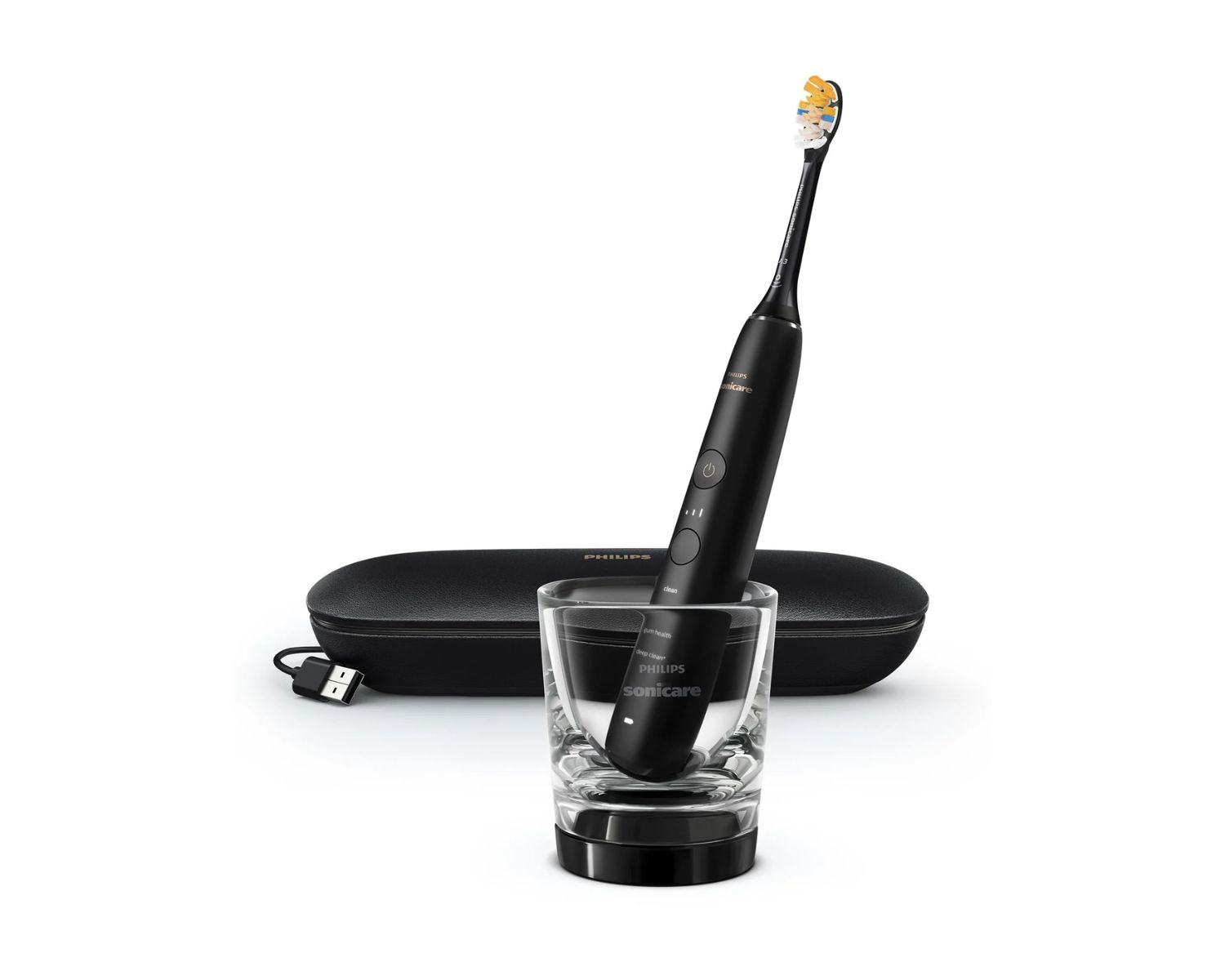
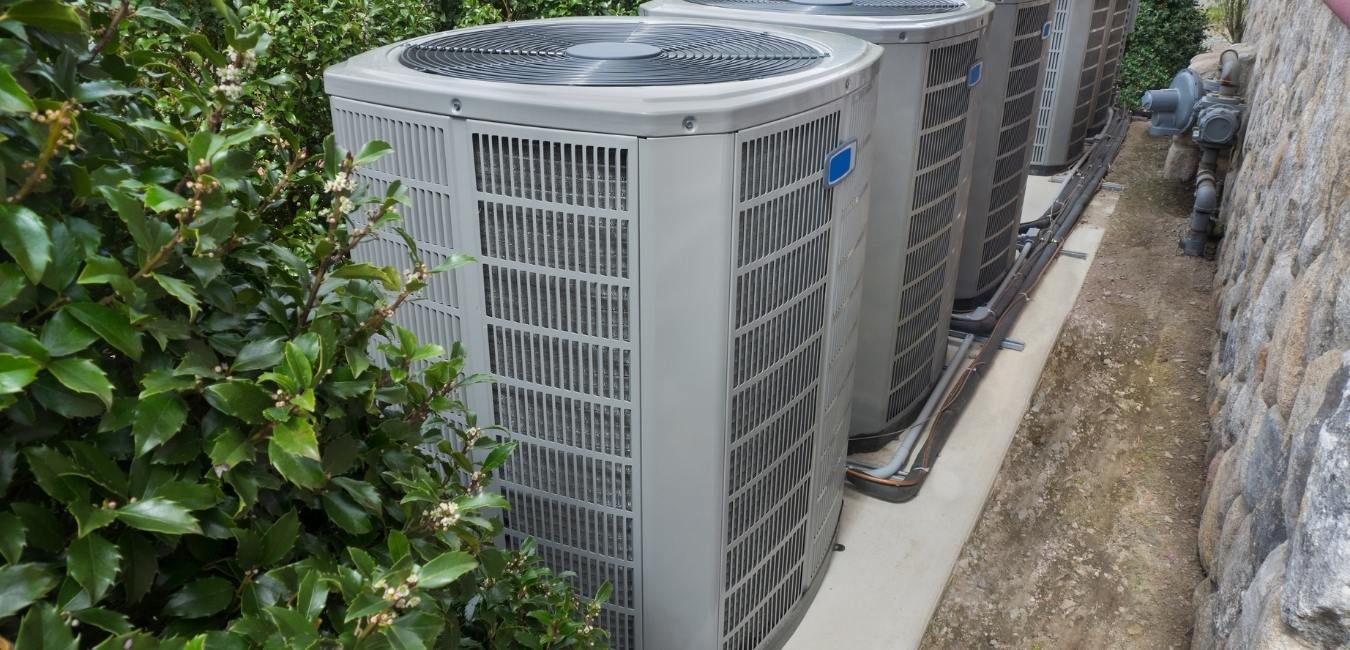
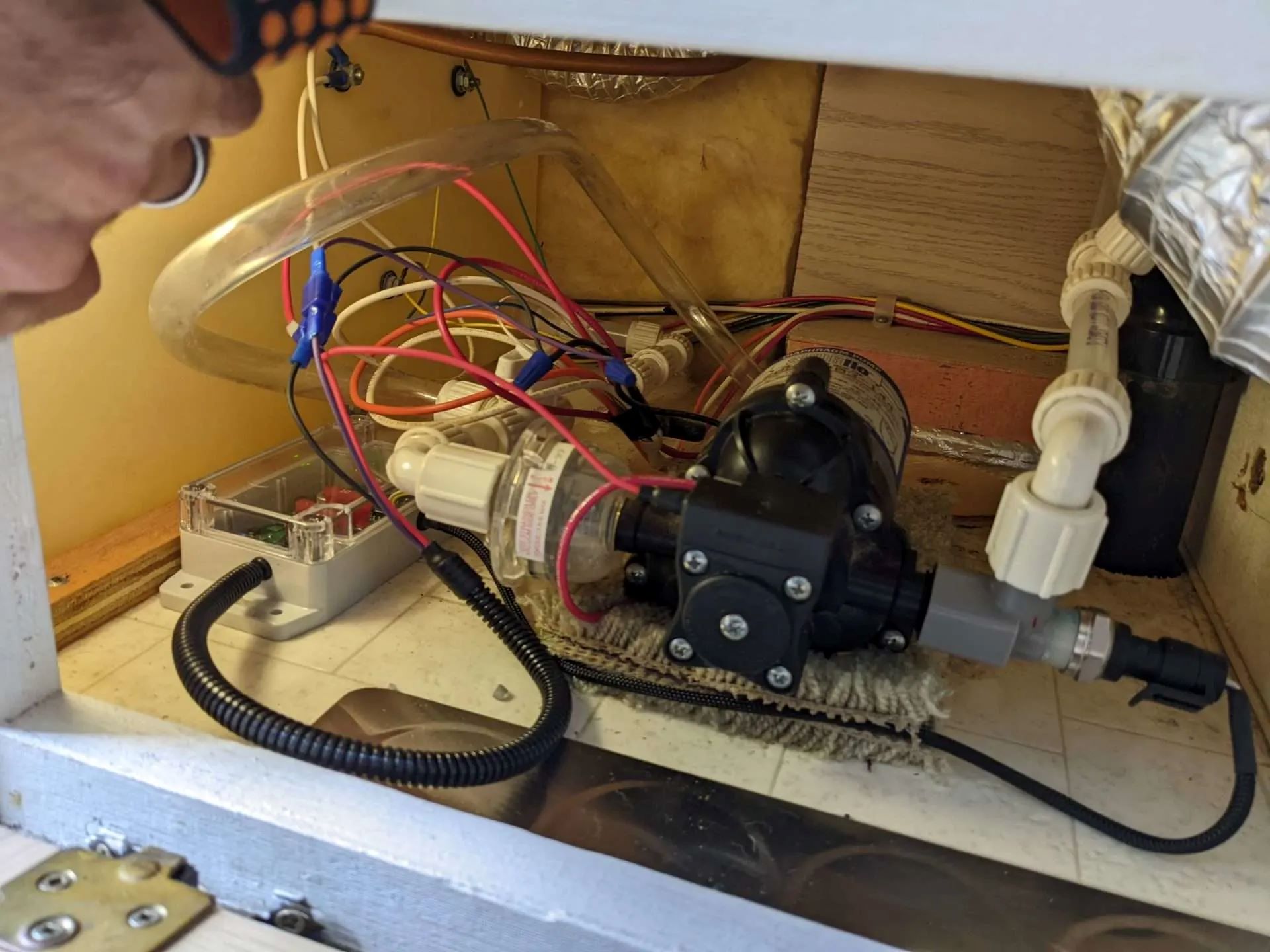

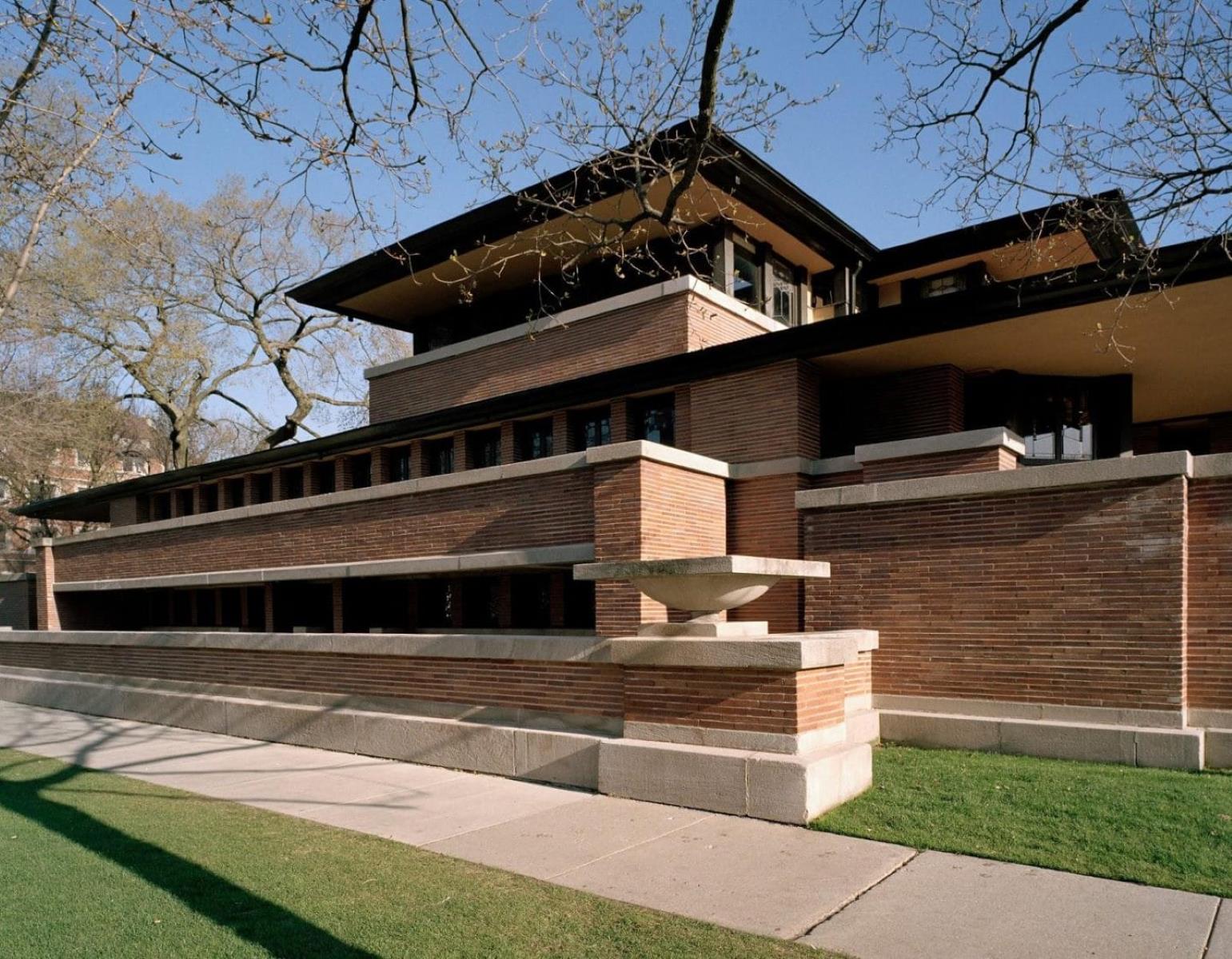


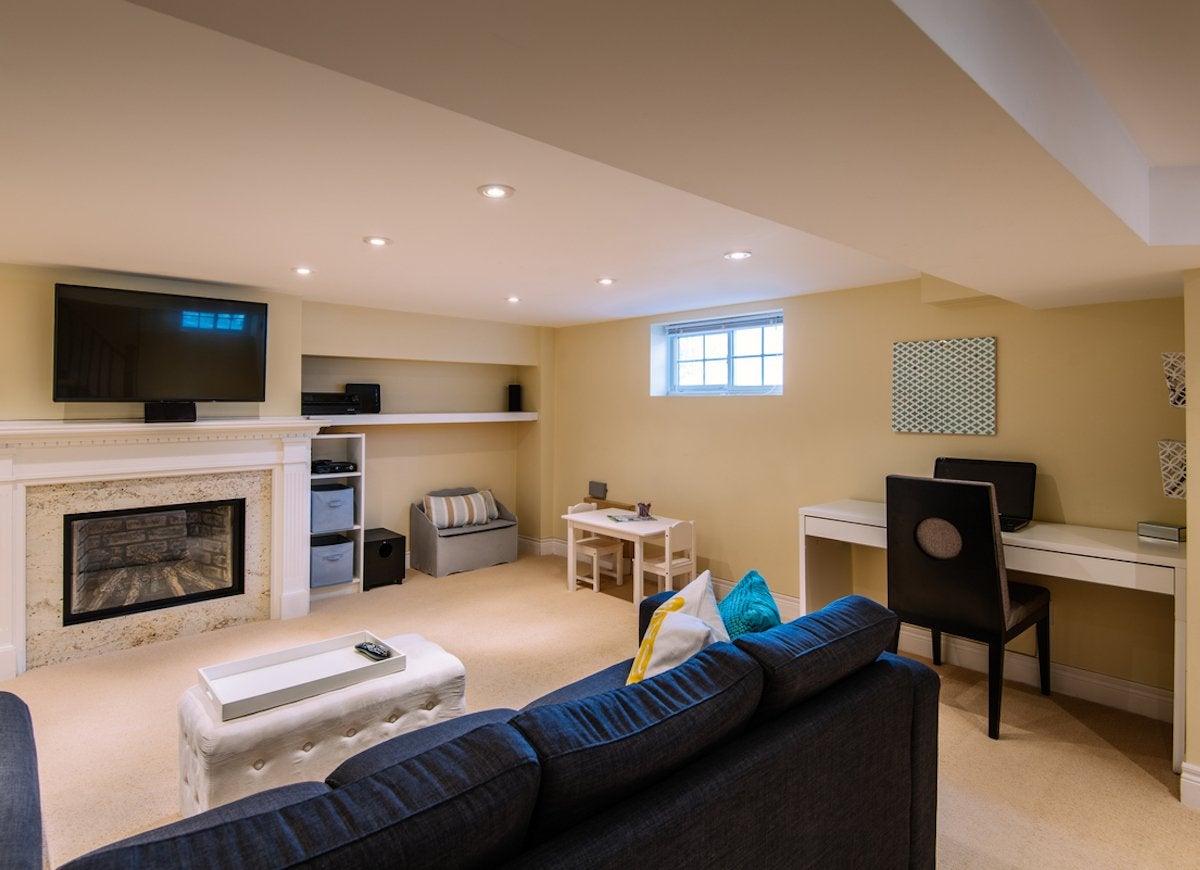
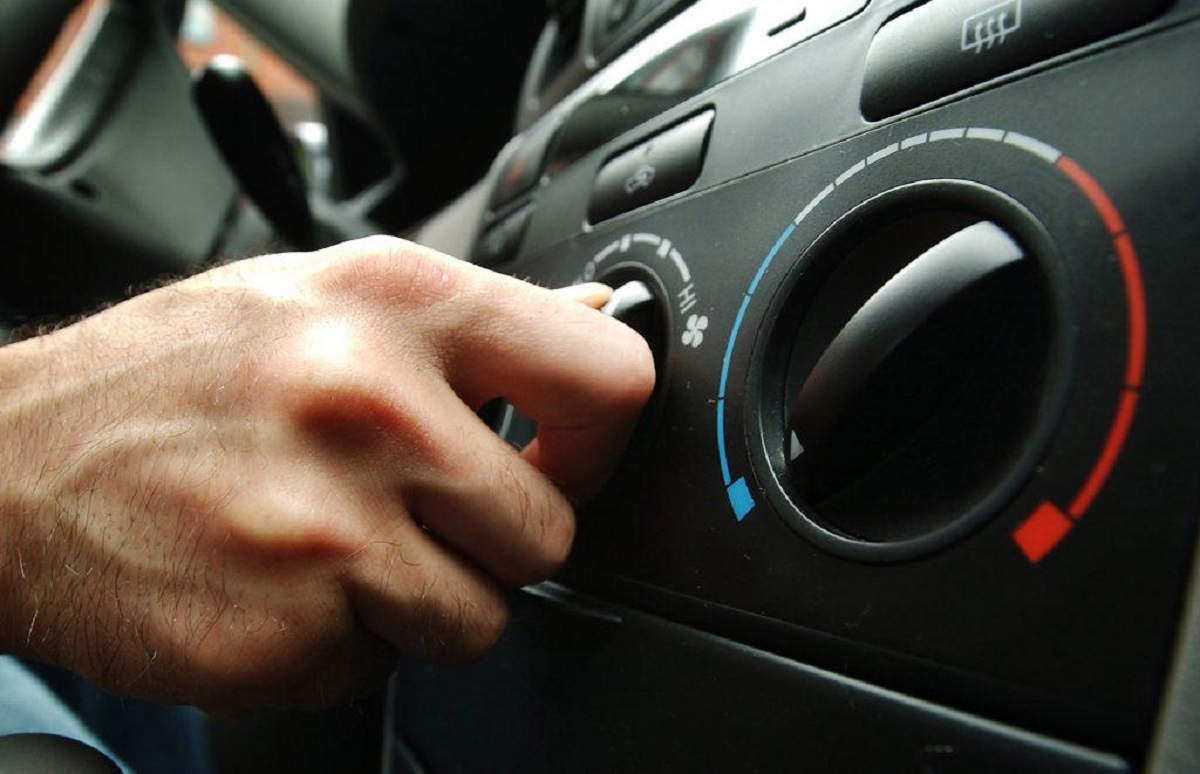
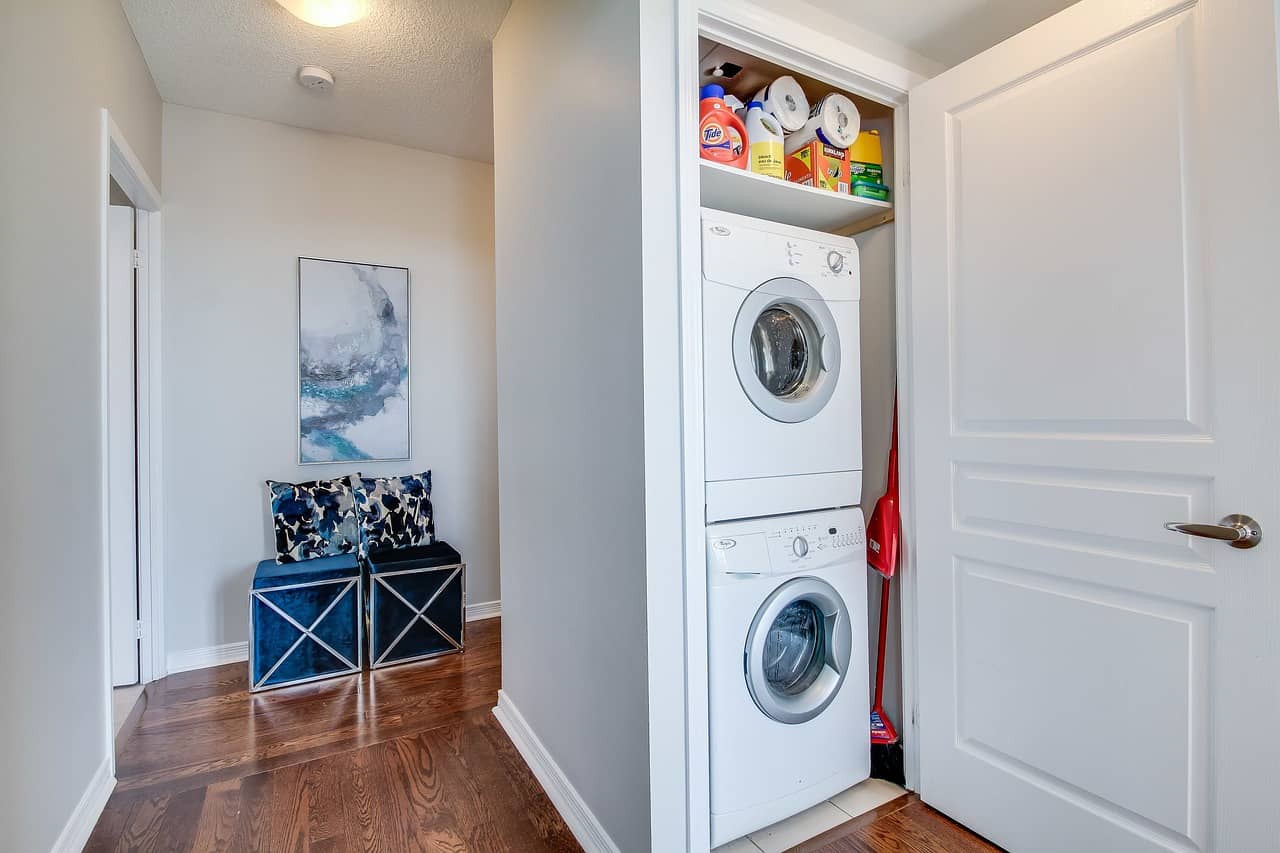

0 thoughts on “Why Is My AC So Loud Inside My House”